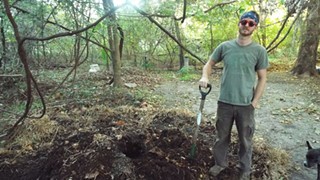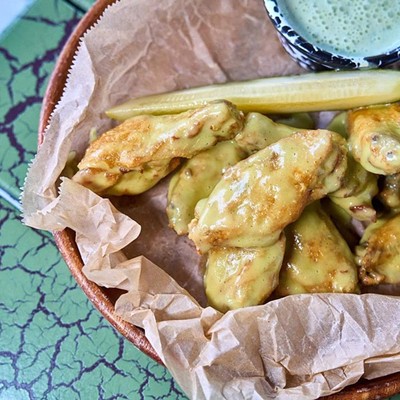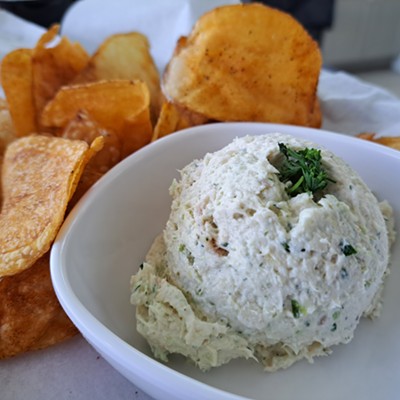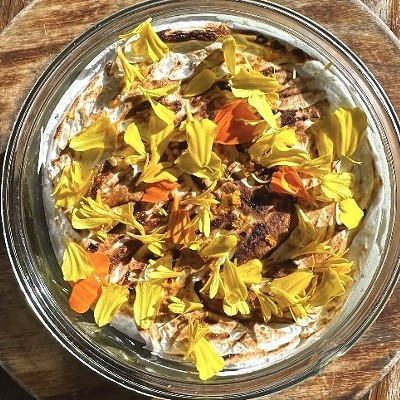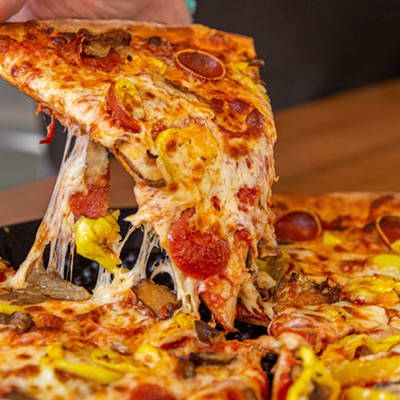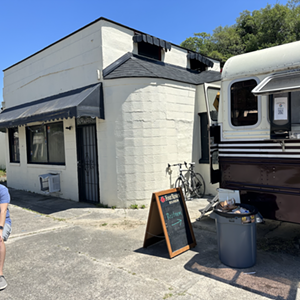THE BIG food week is here. You—or someone who loves you—will chop, chop, chop. And you'll be going yum, yum, yum.
But what’s in the kitchen? And what’s in the trash? What about those potato peels, carrot tops, coffee grounds and egg shells?
If you’re sending these gifts of nature to the landfill, you need the wisdom of Savannah composting advocate Andy Schwartz.
“You shouldn’t be wasting,” Schwartz says. “But if you can reduce it in some way and maximize its uses, that’s even better.”
Schwartz has been “maximizing food waste” for about seven years as a farmer, volunteer, grocery manager and champion for sustainable food.
This year, he started a business, Grow Eat Repeat, that he hopes will grow as Savannah embraces farm-to-table practices. Schwartz is composting for those of us—starting with restaurants—that don’t have the time or space to chuck those useable scraps into a heap and turn, turn, turn.
“You look at Charleston, they have a commercial composting business where they do curbside recycling for restaurants,” Schwartz says. “It’s just another bin they pick up.”
I met Schwartz before the Thanksgiving chill set in at his office, a shady patch of soil off a noisy industrial corridor on downtown’s western fringe. There, he grabbed a pitchfork and turned over three six-foot diameter piles of compost in various stages of—shall we say—“usefulness.”
“The one that’s new is a little bit stinky,” he says. “But it’s a good smell.”
The fragrance comes from microbes, fungi and bacteria working for Schwartz under his free labor plan.
They break down food parts and other organic material. And he gets a dark, rich, crumbly and odor-free soil amendment for his customers and gardens across the city.
“The seeds and the plants or whatever you’re growing in your yard, you want to feed them, too,” Schwartz says. “This is a big organic bomb of life into your garden.”
Composting reduces methane emissions, cuts trash hauling fees, extends landfill life and keeps one more bag of synthetic fertilizer from hitting the ground.
Still, if you’ve never done it before, it can be tricky. The most important part is the mix.
“Somebody might hear ‘food waste’ and think it’s only their kitchen scraps,” Schwartz says. “That’s a very important part of it. But you need to have these dry things.”
That would be things like leaves and straw. But don’t think you’re going to rake up your waxy magnolia leaves or dump out bags and bags of live oak leaves and get a good break down.
Some leaves don’t go in the pile. And it should have about twice as much dry stuff as food waste. What about meat? No. What about paper? It depends.
Schwartz is patient with brown thumbs like me with lots of questions.
After all, his mission on the Georgia coast has been sustainable food education since just after he arrived here from Indiana to work in hospitality management in 2007.
He worked at a hotel briefly. But then the soil called him. He began tending gardens for high-end coastal resorts. He volunteered for a year on a South African organic farm.
His day job now is at Whole Foods, where he runs the produce department.
“I’m composing at work,” Schwartz says. “It’s part of my job there. I come home and compost. I don’t sleep in the compost piles. But just about everything short of sleeping in the compost is part of my daily life.”
Grow Eat Repeat is Schwartz planting a seed. He’d like it to grow into a job for himself and others.
But if you hear his message and start composting with holiday kitchen scraps this year, it’ll be a job already done.

